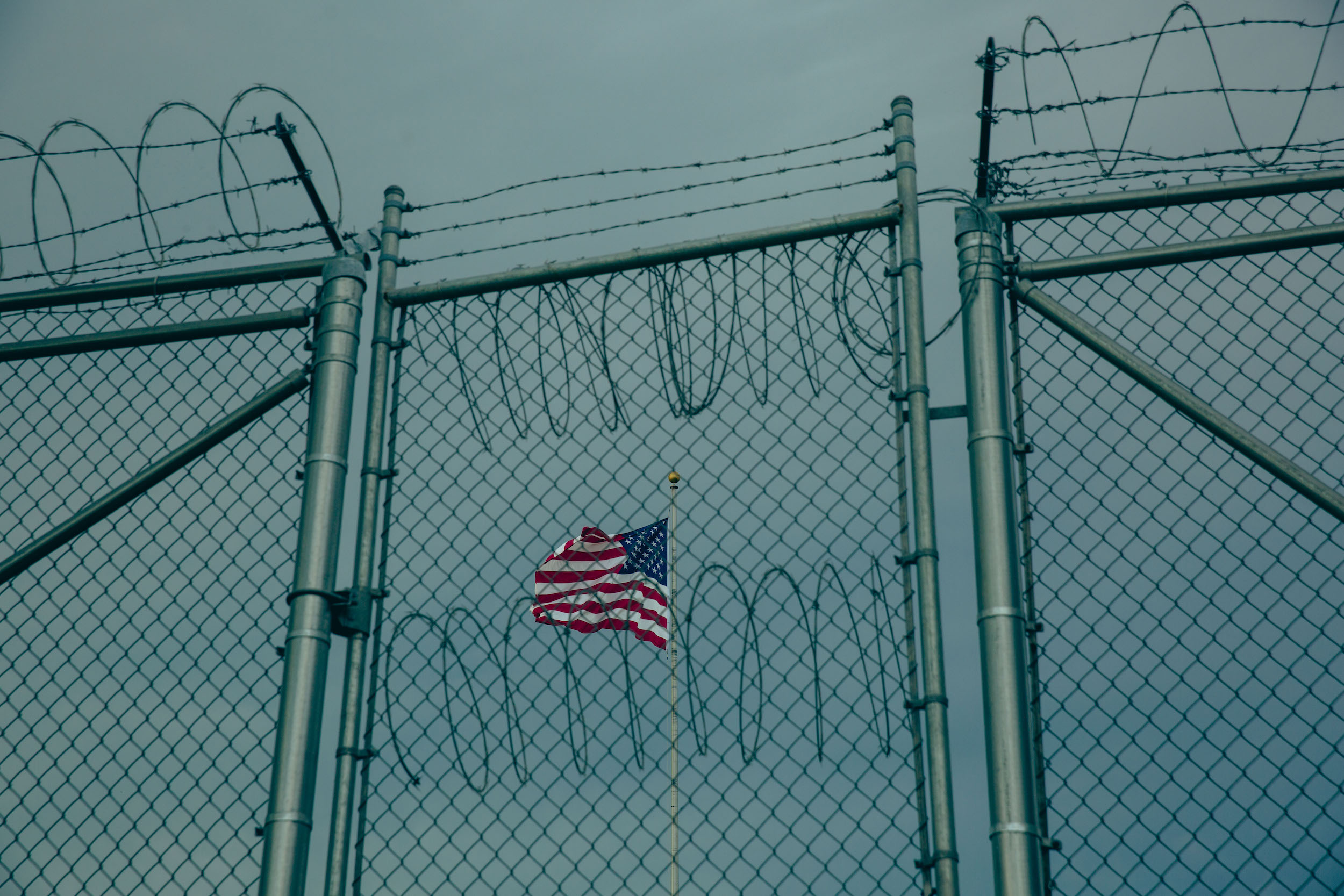
When I heard the news that President Donald Trump wants to detain up to 30,000 migrants at Guantánamo Bay in Cuba, my stomach sank. I am an immigration attorney at the International Refugee Assistance Project (IRAP), and last year my colleagues and I published a report trying to uncover and end the inhumane detention of refugees at the naval base. The details of our investigation show why the Migrant Operations Center at Guantánamo should be closed, not expanded, and why the Trump administration’s plan for mass detentions would be disastrous.
Most Americans know Guantánamo for its notorious role as a United States military prison post-9/11. But it also has a long history as an offshore migrant detention site where refugees face some of the same secrecy, inhumanity, and efforts to avoid oversight.
Two years ago, we received a tip about a refugee family imprisoned there. They were Cuban dissidents who, with their two children, had to flee by sea because Cuba would not allow them to board a plane. During their sea journey to Florida, their boat broke down and the U.S. Coast Guard took them into custody.
U.S. officials screened the family at sea and determined they faced persecution in Cuba and should be allowed to seek protection. They then gave the family an ultimatum: return to Cuba or remain incarcerated indefinitely at Guantánamo until a third country agreed to resettle them.
When IRAP accepted their case, U.S. authorities at Guantánamo had already determined the family was eligible for refugee protection, yet they had been held for months under conditions that would fail the mainland’s immigration detention standards.
The U.S. government ignores its international and domestic obligations to uphold legal and human rights at Guantánamo. Indeed, providing our clients with legal counsel proved nearly impossible—it took us months to secure a single unmonitored phone call. The conditions we uncovered were alarming. Refugees’ phone calls were suspended for 15 days after one complained of mistreatment at the facility on a monitored call. They were forced to live in dilapidated buildings with mold, sewage, and rodent issues, and were confined to their rooms for weeks on end.
My clients’ children didn’t receive any schooling for the first six months of their detention and both were in acute physical and psychological distress. Nearly a year into their confinement, a doctor assessed the children needed physical and psychological care unavailable at the base. In light of this finding, IRAP threatened to sue the U.S. government, after which the family finally was allowed to resettle in a third country.

Elise Swain/Getty Images
Unfortunately, their story is far from unique. IRAP’s report details the secretive practice of family detention at Guantánamo Bay and the widespread mistreatment of refugees interdicted at sea, including many from Cuba and Haiti. Following the release of the report, 130 organizations joined us to write a letter calling on the U.S. government to close the Guantánamo Migrant Operations Center.
Immigrants have long been the target of fearmongering by U.S. politicians, and Guantánamo Bay has a dark history of being used to circumvent U.S. law and unjustly imprison immigrants looking for safety. During the 1980s and ’90s, the U.S. government detained thousands of Haitian asylum seekers indefinitely at Guantánamo in substandard conditions.
The Trump administration’s actions continue that shameful legacy. In the words of Alberto Corzo, a prominent journalist who fled Cuba under threat of arrest only to be detained at Guantánamo with his wife and three children, “Te hacen sentir que migrar es un delito”—they make you feel as though migrating is a crime.
The U.S. government under multiple administrations has maintained Guantánamo as an offshore detention site for refugees interdicted at sea. Now, the Trump administration has taken this carceral logic even further by detaining people at the base who previously lived within the United States. This is a dangerous expansion of the facility, Trump’s deportation agenda, and the immigration detention system more broadly.
The first flight of immigrants sent from the United States to Guantánamo arrived on Tuesday, accompanied by photos of men in shackles and social media posts from government officials calling them “the worst of the worst.” Don’t be deceived by nativist fearmongering. We are in the midst of a propaganda campaign to brand all immigrants as criminals in order to justify an indiscriminate deportation agenda characterized by cruelty and dehumanization. If fully enacted, the Trump administration’s plan would forcibly separate tens of thousands of people from their families and communities in an attempt to offshore their basic rights at Guantánamo. This is beyond the pale and it must be rejected.
My clients deserved better than what the U.S. government forced them to live through, and my heart breaks at the thought that tens of thousands of other innocent families could suffer the way they did. Instead of expanding Guantánamo, we need to close it immediately.
José Miranda is a Supervising Attorney at the International Refugee Assistance Project (IRAP) in New York City where he represents refugees and asylum seekers from around the world.
The views expressed in this article are the writer’s own.





